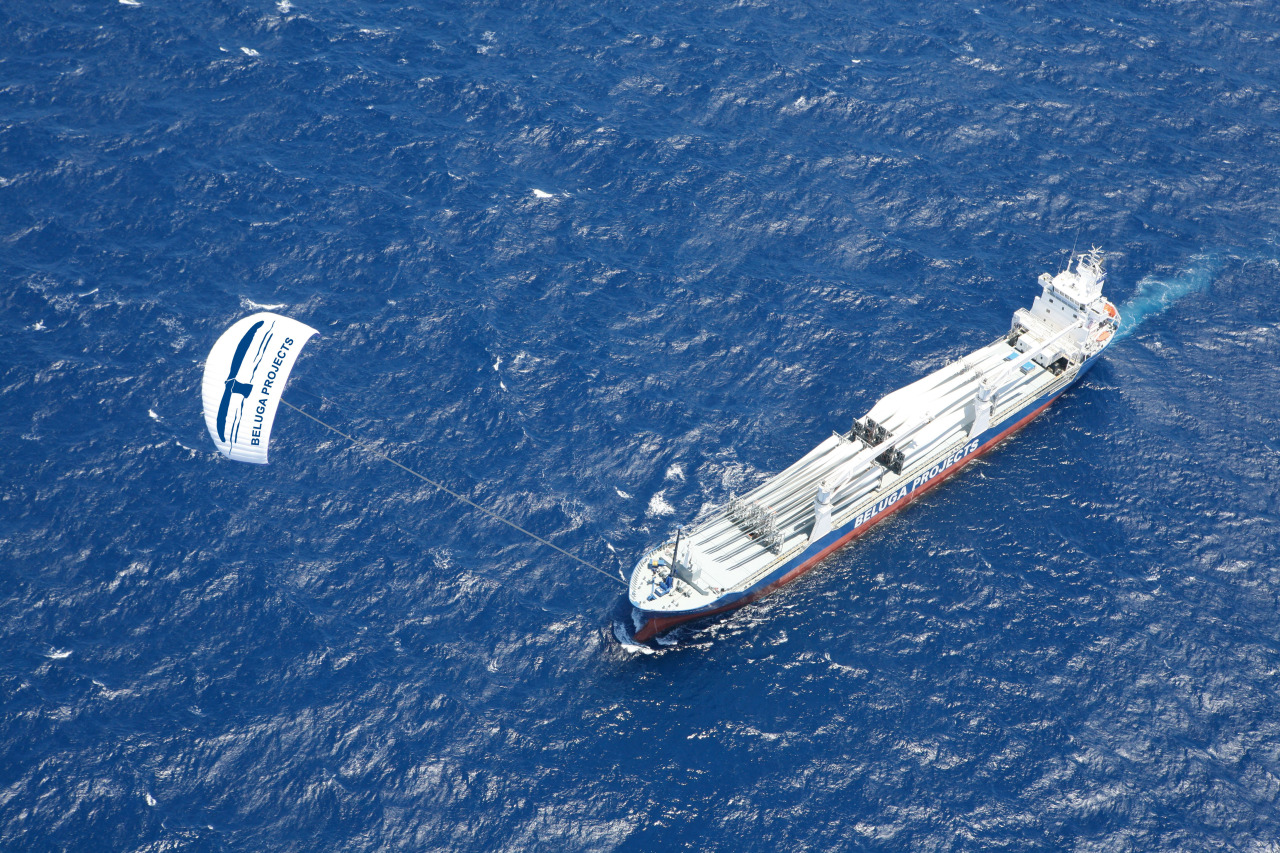A conventional ship with an easily deployable and retractable kite sail system burns less fuel than one without it. It's a type of hybrid vehicle, that has two propulsion methods, the main reliable one, and the supplementary one, for fuel efficiency. With the system installed and the kite in use, the ship saves an estimated 15% of fuel. However:
"There's a structural problem slowing down the process: ship owners (who have to make the investment) often don't pay for the fuel – that's the charterer's duty. The charterer on the other side doesn't charter the ship for long enough a period to make installing low-carbon, but potentially expensive, untested technologies pay back."
The lack of carbon emissions regulations for shipping and low fuel prices have added to these difficulties. The shipping industry is responsible for around 940 million tonnes of CO2 annually, which is about 2.5% of the world's total CO2 emissions.
A company behind these (SkySails GmbH), while technically successful at cutting shipping costs and carbon emissions, has faced economic difficulties. Since then, the company (reborn as SkySails Group GmbH) has switched to land-based airborne wind energy systems for electricity production from high-altitude winds.
What do you think? Yay or nay? Is this technology dead in the water? Not worth the effort? Will we see ships like these in the near or distant future? What needs to change?
Some good reads:
http://www.vos.noaa.gov/MWL/apr_09/skysails.shtml
https://rctom.hbs.org/submission/lets-go-fly-a-kite-skysails-and-climate-change/

This is one of those situations where the free market doesn't give desirable results, and where a government could step in and give subsidies for this goal, assuming it were serious about decreasing GHG emissions.
There would be no profit for the state, beyond less climate change, but the shipping industry would profit, having to spend less fuel.
that and government should actually step in firmer: laws for regulating companies to much limit ghg emissions. basically
but companies' lobby for maintaining status quo, for max profit is strong... some companies are arguably more powerful than government.